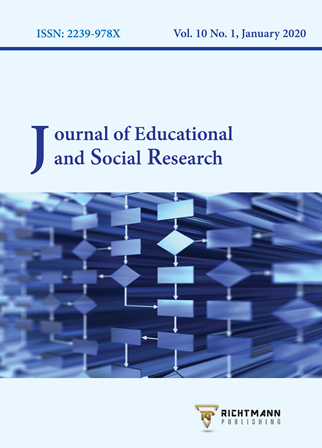Outdoor School Activities Strategy for Enhancing Student’s Academic Achievement and Retention in Science in Delta South Senatorial District
DOI:
https://doi.org/10.36941/jesr-2020-0009Abstract
The study examined the effects of outdoor science activities on student’s academic achievement and retention in science in Delta South Senatorial District. The quasi-experimental design was used specifically, the non-equivalent pre-test, post-test control group design. Four research questions and hypotheses were raised and formulated to guide the study. The population consists of all senior secondary school two (SSII) science students in all the Government-owned public schools in the Senatorial District with an estimation of fifteen thousand, two hundred and seventy-five students (15,275). A sample of two hundred and fifty (250) SSII science student’s randomly selected from four (4) public mixed secondary schools in the Senatorial District was used for the study. The instrument used for data collection was the Science Achievement Test (SAT) which was validated by experts in the field of Science, Measurement and Evaluation. The reliability of the instrument was established using Kuder-Richardson formula 21 which yielded coefficient of internal consistency of 0.82. Data were collected by administering the Science Achievement Test (SAT) as a pre-test. Post-test and post-post-test (follow up test). The data obtained were analysed using mean, standard deviation, Analysis of Variance (ANOVA) and Analysis of Covariance (ANCOVA). The results showed that there was a significant difference in the mean achievement and retention scores between students taught using outdoor science activities and those taught without outdoor science activities. There was no significant difference in the mean achievement scores between male and female students taught science with outdoor science activities and there was a significant difference in the mean retention scores between male and female students taught science with outdoor science activities in favour of male students. Based on the findings, it was concluded that outdoor science activities may be an option in promoting students’ academic achievement and retention in science students. Based on this, it was recommended that science teachers should adopt outdoor science activities in teaching science at the secondary school levels and that Government should provide an essential outdoor learning environment in schools to facilitate outdoor science activities.
Downloads
Downloads
Published
Issue
Section
License
This work is licensed under a Creative Commons Attribution-NonCommercial 4.0 International License.









